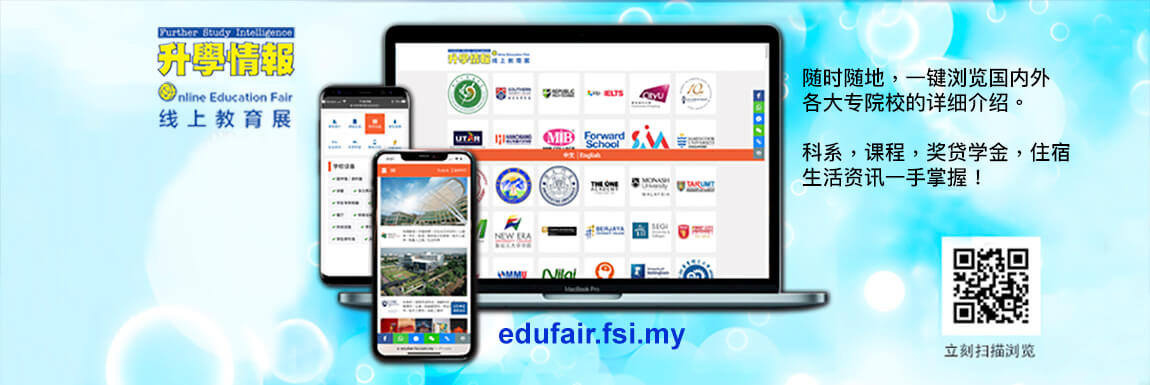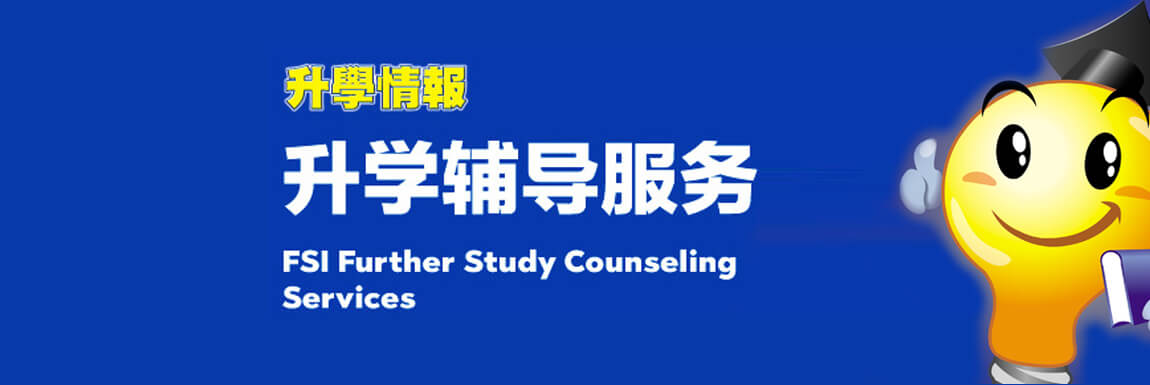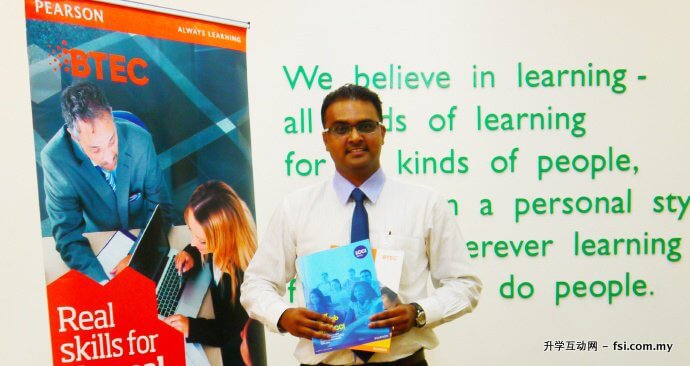整理|林婉婉(升学情报中心特约研究)
英译|林武聪(升学情报特约翻译)
Compiled by: Lim Wan Wan (FSI contracted Researcher)
Translated by: Ling Boo Chong (FSI contracted translator)

1. 上课专心听讲:专心聆听老师在课堂上讲授的课程重点和辅助知识,并随手做笔记,以便在课后回顾,以掌握新知识和考试重点。
1. Listen attentively in class: Listen attentively to the salient points and relevant facts taught by the teacher in the class. Take some notes to facilitate revisions which you may do after class. This will give you a good grasp of the new knowledge and the contents considered important for the exam.

2. 寻找适合的温习方式:视觉型学生可透过阅读和画图来复习功课;听觉型学生可透过和同学一起讨论功课或诵读课文加强温习效果;行动型学生可透过动手搜寻和整理学习资料,或是教导同学解答习题达到温习的效果。
2. Find your suitable revision methods: If you like the visual learning style, you can do your revision by reading and then illustrating the points in pictures. If you are more inclined to the auditory learning style, you can discuss the lessons with your classmates or read out portions of the textbook to strengthen the effects of your revision. If you prefer the kinesthetic learning style that stresses on action, you can search and compile the relevant information or help your classmates to answer questions in the exercises in order to achieve the required results of your revision.

3. 整理课文重点:将课文的重点用思维导图、图画、表格或笔记等方式,记录在记忆卡或笔记本,这有助于日后温习的速度和效率。
3. Sort out salient points of the text: Use mind maps, pictures, charts, notes or other methods to present the salient points of the text on memory cards or notebooks. This can enhance your speed and efficiency of revision in the future.

4. 勤做练习和历届考题:多做习题和历届考题,好让自己熟悉考试出题范围,并掌握作答技巧与答题速度,同时也可找出不明白之处,或还需要加强的部分,以适时调整自己的复习策略和范围。
4. Do more exercises and answer past year exam questions: Practise by doing the exercises and answering past year exam questions. This will help you to get familiar with the scope of exam questions as well as to know the techniques and your speed of answering questions. Through this process, you can also discover certain aspects that you may not understand or that may require you to give more attention. Consequently, you can make timely adjustments to the strategies and scope of your revision.

5. 安排复习时间表:依据自己在各科的表现,设下复习目标、范围与时限,并找出适合自己的复习方式和时段,来制定温习项目和时间表。
5. Prepare a revision timetable: Based on your performances in various subjects, set your revision objectives, scope and time limit, find out your suitable revision methods and time periods, then prepare a list of your revision concerns and a timetable.

6. 寻求帮助:遇上不明白的内容,应请教老师、同学或亲友,甚至是请老师给予恶补,或使用线上资源,例如谷歌、线上字典、线上教材和线上补习等,以搞懂不明白的课程内容。
6. Seek assistance: If you find some contents that you do not understand, you should ask your teachers, classmates, friends or relatives, and even request your teachers for intensive tuition. You can also use online resources such as Google, online dictionaries, online teaching materials and online tuition to gain proper understanding of the contents.

7. 适当休息:休息是为了走更长远的路!每次学习30分钟,可休息5分钟,做做小体操或喝杯水,但是不要去做刺激性或分散注意力的事情;适当的休息有助于吸收知识、加强专注力,和缓解压力。
7. Take proper rest: Taking rest is meant for travelling a longer journey! Study for 30 minutes in one session and then rest for five minutes. You may do some light physical exercises or take a cup of drink, but avoid doing anything that may disturb your mind and divert your attention. Proper rest can help to promote absorption of knowledge, enhance concentration and relieve tension.

8. 健康饮食、睡眠与运动:摄取蔬果、鱼类可增强记忆力、保持思维敏捷,再加上充足的睡眠与运动,能让身体处于最佳状态,有利于学习和应付考试。
8. Healthy diet, sleep and physical exercises: Take more fruits, vegetables and fish as they can enhance memory and promote active thinking. Added with adequate sleep and physical exercises, the body can be kept at optimum condition to facilitate learning and to take the exam.

9. 考试前一天的准备:考试前一天,确保隔天所需使用的准考证、身份证、手表、水壶与文具(例如2B铅、胶擦、蓝或黑笔、尺、圆规、电子计算机等)都已放进书包,并提早睡觉以养足精神去应考。
9. Preparation on the day before exam: On the day before exam, ensure that all the exam permit, identity card, watch, water container and stationery items (such as 2B pencil, eraser, blue or black pen, ruler, compass, electronic calculator and so on) have been put in the school bag. Go to bed early so that you can be revitalized for taking the exam the next day.

10. 考试当天的战略:考试当天提早起床,食用营养早餐,衣着整齐校服,提前出门以避免迟到而错过考试入场时间。获得试卷后,先仔细阅读作答指南,再开始作答;如果遇上不会回答的考题,可以跳过,先完成其他有把握的考题;完成试卷后如果还有时间,可检查自己的答案,并随需有修改或补充。
10. Strategies for the day of exam: On the day of exam, wake up early, take a nutritious breakfast, put on your neat school uniform and leave home earlier to avoid late arrival at the exam venue. On getting the exam paper, carefully read the instructions first before you start to write the answers. If you come across any question which you have difficulty in answering, skip it first and answer other questions that you have more confidence. If there is still time after you have finished answering all the questions, check through your answers and revise or add on to your answers as you deem necessary.
(参考资料:万事指南网站、www.youthcentral.vic.gov.au、维基百科网站、百度经验网站、宽柔中学独中统考考试规则与考生须知)
(References: wikihow.com, www.youthcentral.vic.gov.au, wikipedia.com, jingyanbaidu.com, Foon Yew High School UEC Exam Regulations and What Candidates Must Know.)










